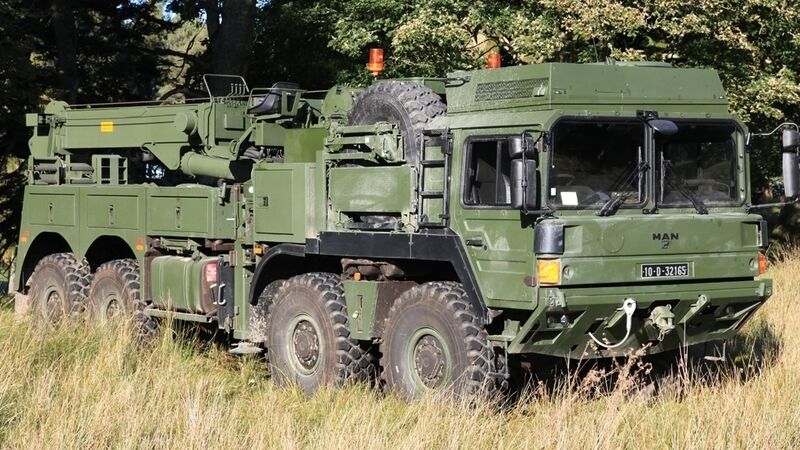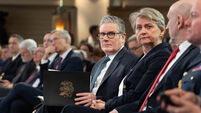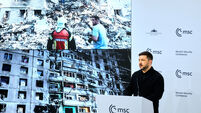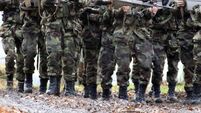Ireland contributes Defence Forces vehicles and de-mining robots to Ukrainian army

The 34 vehicles include two Ford Transits, three Mercedes ambulances, five Scania 8x8 DROPS Trucks, eight Ford Transit 15-seater minibuses, and 16 Double Cab Ford Rangers. File photo
Irish experts on Eastern Europe have welcomed the Government’s supply of 34 Defence Forces vehicles and three de-mining robots to the Ukrainian army.
Tánaiste Simon Harris, who is also defence and foreign affairs minister, said the donation was a “further indication of Ireland’s steadfast support” for Ukraine and that it continued Ireland’s provision of “non-lethal aid” to the country.













